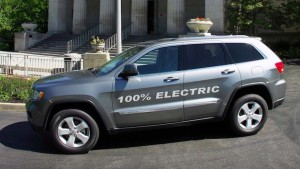Hydrogen Vehicles Aren’t Going To Happen

And here is the original source. From the original source it seems that microwaves are used to “crack” paraffin and produce hydrogen with graphite and potentially methane as by-products.
Thanks very much. To me, the gating factor to hydrogen vehicles is the poor efficiency with which the gas is made, and the lack of an infrastructure to deliver the fuel. And keep in mind that all of this is occurring in an environment of lower cost and better performing battery EVs that are becoming more attractive every day. Hydrogen’s toast, IMO.

Evs have their place and may become the most common vehicle technology. It is too soon to know for sure. However, it may be that EVs will coexist with vehicles using an artificial fuel the reason being that the energy density of an artificial would be far greater than the energy density of batteries. It is unlikely that that artificial fuel would be H2 since storing and transporting H2 is not easy. It may be that ammonia would become the artificial fuel of choice even though liberating the H2 to make ammonia is not efficient.
Battery powered airplanes could have only very limited applications because of the low energy density of batteries. The solution for that has yet to emerge.
At one time all we saw were articles saying that bio-fuel was essential for aviation because batteries would never have sufficient energy density / weight. But times change with advances in technology. It seems that more people are measuring the eroei for bio fuels and and finding the results disappointing. This pretty much echo’s Craig’s point above.
But the fact that technology does change suggests that while hydrogen today is a terrible idea, a string of new technologies might make a difference long term. The petrochemical industry sees hydrogen cars as a way to sell their products. Most hydrogen today is made from petrochemicals. So they are pushing the technology privately and they are pushing government to push the technology. And there are a lot of people who are buying into the idea that hydrogen is a “clean fuel.”
The argument that the power plant doesn’t matter with BEV but the refinery does matter with a HFCEV is going to be a bit of a tough (complicated) sell. (It hinges on relative efficiency, potential to improve the process, and pollutants involved.)
In addition we don’t need clean hydrogen cars in the long term as it is quite likely that EV technology and infrastructure will surpass hydrogen long before hydrogen can finish the race.
That would then leave hydrogen cars as nothing but a diversionary tactic on the part of fossil fuel interests.
Craig,
You are certainly entitled to your opinion, and you may very well be proved correct.
However, I wouldn’t dismiss HFC technology with such certainly just yet ! Neither Toyota of Hyundai are noted for poor engineering decisions. Both envisage a strong case for HFCV’s becoming successful.(both corporations have been manufacturing millions of HFCV forklifts for many years.)
The is always the potential for EV ESD technology to have a sudden and dramatic breakthrough, but that’s far from being guaranteed and in the meantime,HFCV technology has three very powerful and influential supporters.
The attraction of HFCV technology is the technology has been proven to be able to provide competitive, zero emission (tailpipe) transport that is proven and works, in a non-disruptive manner.
Currently ICE technology still holds 99% of the global market, so there is no sense of urgency.
The advantage for the average consumer is that the experience of owning an HFCV will remain almost exactly the same as their current vehicle. Consumer are creatures of habit. The will support a zero emission vehicle if it proves to have the same level of comfort and convenience as the currently enjoy.
The the consumer, an HFCV is just a matter of changing pumps. If it’s also quieter, cheaper to operate and cleaner, then so much the better.
For the three principle stakeholders, the Auto-manufacturers, H2 suppliers, and Governments, the benefits are obvious.
Esoteric arguments, really don’t count when it comes to commercial reality.
The only question is the speed and probability of improving EV ESD capacity, and recharge speed.
I agree with most of this. In particular, the gating factor really IS the development of EV performance–which appears to be pretty solid at this point.
Craig,
The problem with EV ESD is that it comes of very low base and improvements with lithium technology will continue, but to a much lesser degree as the technology reaches it’s maximum potential.
For EV’s to be truly competitive, The ESD needs to achieve a quantum leap. That sort of technology doesn’t currently exist and EV supporters have always had a tendency to be over optimistic and unrealistic.
If a deadline were to be set of say, 10-15 years, to build only zero emission vehicles, then I would invest in HFCV technology.
But while we still have at least a decade of plentiful oil,EV ESD researchers still have time.
Perhaps part of the danger of hydrogen fuel cell electric vehicles is the assumption that they are the same as exists now with f;ueled vehicles. Hydrogen is not gasoline. There is some question if existing fire supression equipment at fueling stations will be effective in the event of a hydrogen fire.
Leaks are probable and a hydrogen flame is near invisible in daylight and gives off almost no heat until in the flame. (UV not IR radiation)
Hydrogen may happen, it is worth watching, but I hope it will not become a distraction to better EV development.